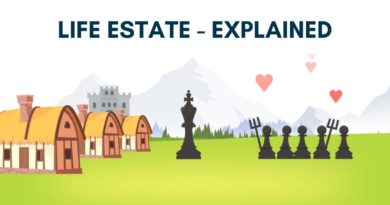[Interview] Dan Christensen, Founder of DC Law
Table of Contents
Dan Christensen has been practicing law since 1994. He started his career working in military courts, notorious for their strict adherence to rules and procedures. For the last several years, Dan has focused his practice exclusively on representing injury victims. He has been involved in almost 200 trials during his career in numerous federal and state courts against the largest defendants, including the U.S. Government.
Dan will utilize his experience and proven results while fighting for you. Regardless of the size of the opponent, Dan has the experience and legal knowledge to aggressively advocate for his clients. And, just as important, he will give you and your case the personal attention it deserves from the initial free consultation through trial.
Dan received a bachelor’s degree with Honors in 1991 and his J.D. with distinction from the University of Iowa in 1994. After graduating from law school, he served in the U.S. Army Judge Advocate General’s Corps (JAG) in Fort Hood, Texas. He served as a prosecutor and defense counsel in numerous administrative hearings and courts-martial ranging from minor offenses to kidnapping, rape, and capital murder.
After being honorably discharged from the U.S. Army JAG Corps, Dan joined a Texas personal injury law firm. Dan worked as the Chief of its Litigation Department and was the firm’s principal trial lawyer for years, trying numerous cases each year. Also, as the head of the firm’s personal injury division, Dan supervised and mentored between 15 and 20 trial lawyers at a time as they prosecuted thousands of cases.
Where did the idea for your career come from?
I practiced at another firm for several years and, at one point, I decided that I wanted to start my own personal injury practice. At the time, the firms offering representation to the average victim with the average claim were providing a very average or pedestrian experience.
The idea behind DC Law was to provide superior customer service and a high level of legal sophistication to every injury victim, regardless of whether they had a huge case or not. Anyone can settle a $20 million case for $10 million and brag about it, but it takes a good lawyer to try a $20K injury case to a jury and walk away with a $100K verdict. That’s what we try to do.
What does your typical day look like and how do you make it productive?
We use technology more than any other firm I have seen. Through various software platforms, we can track deliverables on a day-to-day basis individually and across teams so that we can all be operating at our best and moving things in the same direction.
How do you bring ideas to life?
Even the best ideas will fail unless the team buys into the vision behind them. So, when we deploy a new procedure or tactic, we try to first seek the input of our internal centers of influence. Once they are on board, then we know we must be on track and getting the rest of the team to buy-in is more likely.
What’s one trend that excites you?
Legal finance has become much more creative and accessible. Besides running my practice, I also provide legal finance solutions to other lawyers who need help meeting their cashflow needs. Lawyers nowadays have finally caught up to the rest of the business world and are less fearful of using other people’s money.
A single trial lawyer who is financially strong is much more capable of taking on any defendant and leveling the playing field for their clients. This is a good thing if you care about people having access to justice.
What is one habit of yours that makes you more productive as an entrepreneur?
I was raised in the Midwest. People there are mostly hardworking and humble. I have tried to carry those traits with me. I am hardly ever the smartest person in the room, but I am usually the hardest working.
I am also humble enough to know that I probably don’t have all the answers, but if I surround myself with well-intentioned and smart folks, the answer will likely emerge.
What advice would you give your younger self?
Don’t sweat the small stuff. I know we have all heard this advice, but many of us just can’t follow it.
Tell us something that’s true that almost nobody agrees with you on.
Unfortunately, bad things happen to good people. Juries and others usually look for some reason why something horrible happened to another person to try to feel more comfortable with the idea that it will not happen to them.
It is a principle called cognitive dissonance. It may make us feel better believing that if we do the right thing, nothing bad will befall us. But, in reality, sometimes bad things happen to good people.
As an entrepreneur, what is the one thing you do over and over and recommend everyone else do?
Pay yourself last. Obviously, pay your people first. That is easy. But what some don’t do is to also pay the business first. You have to invest in the business to fuel growth. It may mean that you don’t get to enjoy the fruits of your labor for a while, but the odds of succeeding go up exponentially when the business is paid before the owner.
What is one strategy that has helped you grow your business?
Many of the points we’ve already discussed apply to this question, but I would add that one should plan for things to take twice as long as anticipated and cost twice as much. If you do this, then usually you will not be as disappointed when it comes true.
What is one failure you had as an entrepreneur, and how did you overcome it?
I created a business once that completely failed to be accepted by the market. Fortunately, I was quick to recognize the problem and was able to tweak the offering and resurrect it, eventually making it into a successful endeavor.
What is one business idea that you’re willing to give away to our readers?
I want someone to start a business that, with the click of a button, you can make your car’s windshield totally opaque, like they can do with glass surrounding a conference room. Then, we would not need those stupid windshield screens to keep our cars cool in the summer.
What is one piece of software or a web service that helps you be productive?
Trello. It has an open API and we are able to attach it to our case management system and really manage the workflow of our entire team.
What is the one book that you recommend our community should read and why?
There are so many great books providing business advice, so let me pick one that maybe some haven’t read – the U.S Army Ranger Handbook. It is a great, practical instruction guide on how to plan and execute an operation quickly and effectively, in spite of an enemy presence. Isn’t this what we are trying to do every day?
What is your favorite quote?
“I always get to where I’m going by walking away from where I have been.” – Winnie the Pooh.
Key Takeaways:
- When leading a team, respond to the situation presented and don’t react. There is a big difference. A reaction is often emotional or ego-driven. A response is well-considered and delivered only after having spent time living on each side of the issue, truly understanding each side’s perspective.
- Sound business decisions are important to long-term sustainability. But, sometimes, the wrong needs to be righted, regardless of whether it is profitable or not. Apathy in the face of injustice is our worse enemy.
- Change is the only constant. Anticipate it. Own it. Use it to your advantage.

![[Interview] Dan Christensen, Founder of DC Law [Interview] Dan Christensen, Founder of DC Law](https://americanlegaljournal.com/wp-content/uploads/2022/06/Dan-Christensen-1024x683.png)


![[Interview] Michael Molfetta, Litigation Attorney [Interview] Michael Molfetta, Litigation Attorney](https://americanlegaljournal.com/wp-content/uploads/2022/06/Michael-Molfetta-390x205.png)
![[Interview] Scott McCoy, Managing Partner of Cold Springs Partner [Interview] Scott McCoy, Managing Partner of Cold Springs Partner](https://americanlegaljournal.com/wp-content/uploads/2022/06/Scott-McCoy-390x205.png)
![[Interview] John Himmelstein, Criminal Defense Attorney [Interview] John Himmelstein, Criminal Defense Attorney](https://americanlegaljournal.com/wp-content/uploads/2022/06/John-Himmelstein-390x205.png)